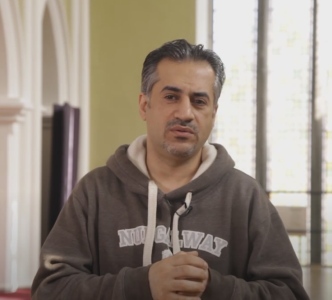-
Courses

Courses
Choosing a course is one of the most important decisions you'll ever make! View our courses and see what our students and lecturers have to say about the courses you are interested in at the links below.
-
University Life

University Life
Each year more than 4,000 choose University of Galway as their University of choice. Find out what life at University of Galway is all about here.
-
About University of Galway

About University of Galway
Since 1845, University of Galway has been sharing the highest quality teaching and research with Ireland and the world. Find out what makes our University so special – from our distinguished history to the latest news and campus developments.
-
Colleges & Schools

Colleges & Schools
University of Galway has earned international recognition as a research-led university with a commitment to top quality teaching across a range of key areas of expertise.
-
Research & Innovation

Research & Innovation
University of Galway’s vibrant research community take on some of the most pressing challenges of our times.
-
Business & Industry

Guiding Breakthrough Research at University of Galway
We explore and facilitate commercial opportunities for the research community at University of Galway, as well as facilitating industry partnership.
-
Alumni & Friends

Alumni & Friends
There are 128,000 University of Galway alumni worldwide. Stay connected to your alumni community! Join our social networks and update your details online.
-
Community Engagement

Community Engagement
At University of Galway, we believe that the best learning takes place when you apply what you learn in a real world context. That's why many of our courses include work placements or community projects.
Cybersecurity and Software Development (PDip)

Course Overview
The School of Computer Science, University of Galway, offers a unique Level 9 Postgraduate Diploma in Cybersecurity and Software Development. This programme is designed to prepare students for the demands of the digital age by reskilling and upskilling them in Cybersecurity while simultaneously training them for software development. Most computing courses aim to deliver high-quality software focused on functionality. In accordance with demand, this course is exclusively designed to augment learners' skills by teaching them the essentials and advances of Cybersecurity for modern software development.
This Level 9, two-year, part-time programme has been developed in tandem with the industry on the advice of the regional skills fora and informed by discussions within the ITAG Cyber Forum. It has been designed in consultation with start-up enterprises, SMEs, and large multinationals to give you the expertise and knowledge required to progress your career.
Considering the growing skills shortage of software developers with a knowledge of Cybersecurity, graduates of this programme will be able to bridge the gap between software development and security teams.
Eligibility Criteria:
As a conversion course, it is open to applicants from non-computing backgrounds to facilitate individuals wishing to change careers, reskill or potentially upskill to improve their employment prospects. The minimum requirement is that students have an L8 undergraduate degree; L7 entrants can also apply but must demonstrate at least two years of industry experience within the computing sector to be considered.
While not mandatory, applicants who have had some exposure to coding and feel they have a knack for it are encouraged to apply.
Course Delivery and Assessment:
We welcome applicants from across Ireland to apply for this 2-year, part-time, online course. Course delivery is asynchronous, meaning applicants can maintain their existing full-time or part-time employment while taking the course. The course will be evaluated via continuous online assessments and on-campus written exams at the end of semesters 1 and 2 in year 1 and the end of semester 1 in year 2 on weekdays.
Industry Placement Opportunity:
In semester 2 of year 2, students will have the opportunity to secure an 8-month industry internship/placement or will undertake a capstone group project with academic supervisors. The placement process (CV preparation, interview skills, events, internship opportunities, interviews) is fully supported by dedicated staff within the University Career Development Centre (CDC). Students can also source their own placement in consultation with the CDC. Where students wish to remain with their current employer, we work with them to define suitable project work to underpin their coursework.
Fees:
The full course fees for AY24/25 are €3,860.00 per student per academic year. This amounts to €7,720.00 in total per student for both academic years, i.e. the full duration of the course. Under Springboard+ in AY23/24, students who are in employment pay 10% of the fee i.e. €386.00 per academic year, with the remaining 90% of their course fees covered by Springboard+. This amounts to €772.00 in total per student for the full 2-year course duration.
Unemployed students have their fees covered in full by Springboard+.
Contact: Ms. Gail Cassidy
Email: ICTskills@universityofgalway.ie
Applications and Selections
Please apply through the Springboard website. Significant demand is expected and early application is advisable as we will process applications on a rolling basis.
Who Teaches this Course
Dr. Mamoona Asghar (Programme Director)
https://www.universityofgalway.ie/our-research/people/computer-science/mamoonaasghar/
Dr. Enda Howley
https://www.universityofgalway.ie/our-research/people/computer-science/ehowley/
Dr. Malika Bendechache
https://www.universityofgalway.ie/science-engineering/staff-profiles/malikabendechache/
Dr. Effirul Ramlan
https://www.universityofgalway.ie/our-research/people/computer-science/effirulramlan/
Dr. Attracta Brennan
https://www.universityofgalway.ie/our-research/people/computer-science/attractabrennan/
Dr. Jamal Nasir
https://www.universityofgalway.ie/our-research/people/computer-science/jamalnasir/
[an error occurred while processing this directive] [an error occurred while processing this directive]Requirements and Assessment
Assessment
Individual modules will include a mixture of continuous assessments usually in the form of lab based assignments, as well as end of semester exams.
Key Facts
Entry Requirements
This programme is open to applicants from all backgrounds who hold a NQAI Level 8 qualification or equivalent. Persons who hold formal qualifications at Level 7 may also apply, subject to provision of satisfactory evidence of having attained Level 8 competencies through prior experiential learning (minimum of two years working in an IT role).
Additional Requirements
Recognition of Prior Learning (RPL)
Persons who hold formal qualifications at Level 7 may also apply, subject to provision of satisfactory evidence of having attained Level 8 competencies through prior experiential learning (minimum of two years working in an IT role).
Please see further information on the RPL Policy here.
Duration
2 years, part-time
Next start date
September 2025
A Level Grades ()
Average intake
40
QQI/FET FETAC Entry Routes
Closing Date
Check Springboard for details.
NFQ level
Mode of study
ECTS weighting
60
Award
CAO
Course code
PGD-CSS
Course Outline
Course Description
The Postgraduate Diploma in Cybersecurity and Software Development has been designed to meet the challenges of re-skilling and up-skilling in a modern economy in response to industry demand for graduates with cloud computing and software development skills. This course provides flexible delivery options to meet this need. It has been designed in consultation with start-up enterprises, SMEs, and large multinationals to give you the expertise and knowledge required to progress in your career.
Course Content
This is a two-year part-time Springboard+ online programme with a weighting of 60 ECTS in total.
This course provides:
- A solid foundation in key computing knowledge at the industry level;
- A specialisation in Cybersecurity making participants aware of cyber threats, vulnerabilities and attacks, threat models, secure software development (DevSecOps), Crypto API, including programming languages such as Java, Java Enterprise, JavaScript (NodeJS) and Python;
- An 8-month industry placement or capstone group project.
Year 1:
Semester 1: 15 ECTS
- Cybersecurity Essentials
- Algorithms and Data Structures
- OO Programming 1
Semester 2: 15 ECTS
- Enterprise Java Programming
- Secure Web Programming
Year 2:
Semester 3: 15 ECTS
- Applied Cybersecurity
- Database Systems
- Architecture, Operating Systems & Networks
Semester 2: 15 ECTS
In semester 2 of year 2, students will have the opportunity to secure an 8-month industry internship/placement or will undertake a capstone group project with academic supervisors. The placement process (CV preparation, interview skills, events, internship opportunities, interviews) is fully supported by dedicated staff within the University Career Development Centre (CDC). Students can also source their own placement in consultation with the CDC. Where students wish to remain with their current employer, they will undertake the group project.
Why Choose This Course?
Career Opportunities
The career prospects for our graduates are extremely strong and demand is dramatically outstripping supply. Our programmes within the School of Computing Science in University of Galway are highly respected among many of Irelands leading software companies. In the past our graduates have often received numerous job offers before they even completed the programme. A selection of roles that graduates will be eligible to apply for:
- Application security engineer
- Network security/Cybersecurity engineers
- Cybersecurity specialists
- Information security, cybersecurity, or vulnerability analysts
- Penetration Tester
- DevSecOps Engineer
- Cybersecurity Architect
- Software Developer/Engineer (Java, C#, Frontend JS)
- Backend Developer
- Database Analyst
- Software Analyst
- IT Manager
- Automated Test Engineer
The career pathways are taken from an analysis of past graduates and the new Cybersecurity roles are sampled from those available from our partner companies.
Who’s Suited to This Course
Learning Outcomes
Transferable Skills Employers Value
Work Placement
Study Abroad
Related Student Organisations
Course Fees
Fees: EU
Fees: Tuition
Fees: Student levy
Fees: Non EU
In 2023/24 Course was government-funded, via Springboard scheme https://springboardcourses.ie/
For 25/26 entrants, where the course duration is greater than 1 year, there is an inflationary increase approved of 3.4% per annum for continuing years fees.
Postgraduate students in receipt of a SUSI grant – please note an F4 grant is where SUSI will pay €4,000 towards your tuition (2025/26). You will be liable for the remainder of the total fee. A P1 grant is where SUSI will pay tuition up to a maximum of €6,270. SUSI will not cover the student levy of €140.
Find out More
Further information can be found on the Springboard+ website and also via email to the course administrator Gail Cassidy (E: ICTskills@universityofgalway.ie) or the programme director Dr. Mamoona Asghar, E: mamoona.asghar@universityofgalway.ie.
























